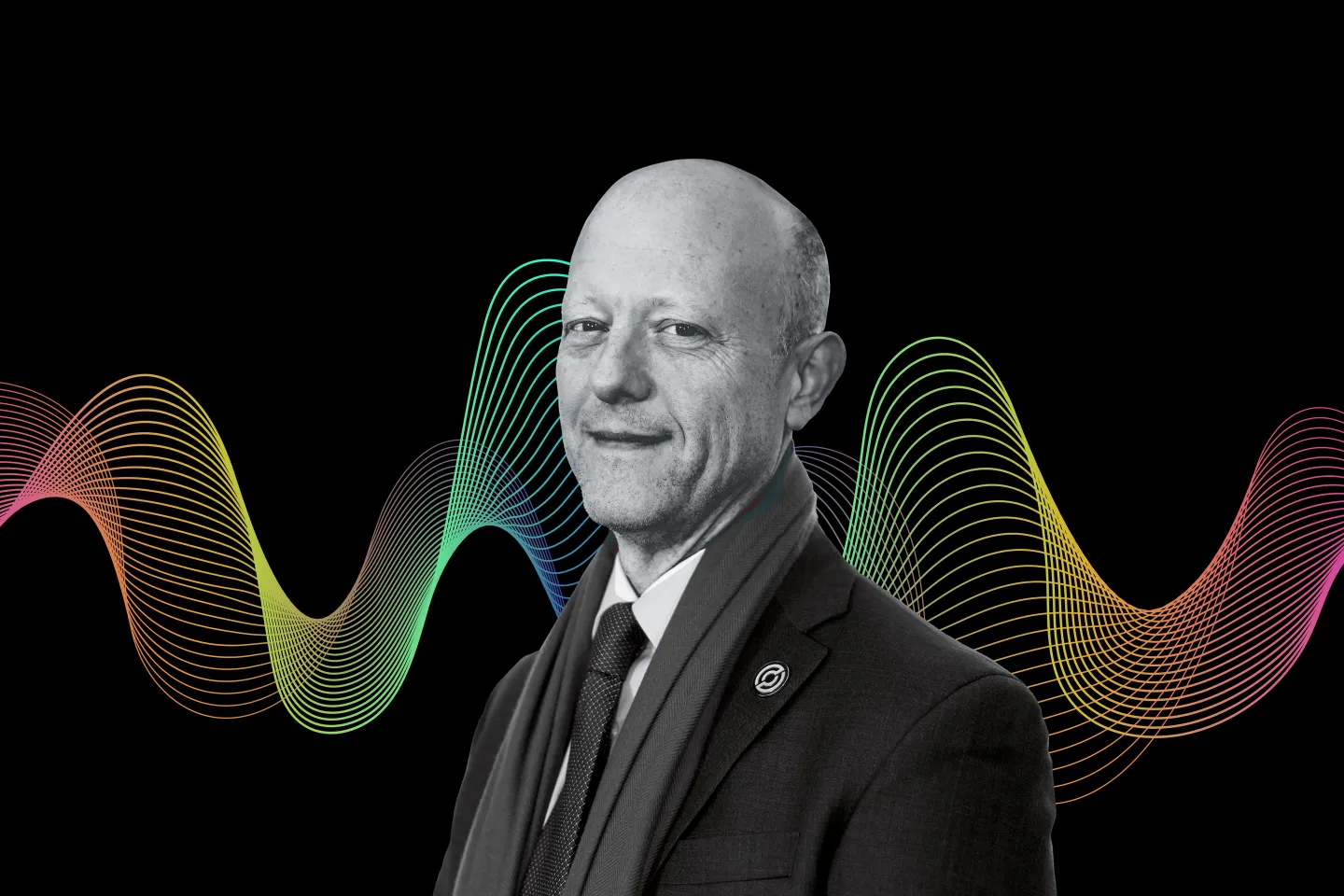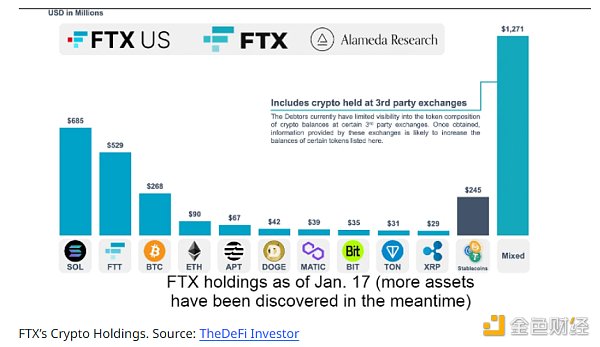Babbitt column | The impact of non-standardization of products and services on blockchain applications
Before writing a text, first face a question: What is the role of the blockchain? As a researcher, the author believes that the important significance of the blockchain is that in the case of the substantial sinking of various rights, the decentralization of many industry patterns, and the brand effect of some centralized institutions, the provision of services Build a bridge of trust between consumers and consumers, allowing them to successfully dock and trade. The way to build trust is to record the information of the relevant service provider on the blockchain.
The standard behind the upgrade of social needs
But is the blockchain capable of concatenating all decentralized service providers and consumers? To answer this question, it is not enough to observe the blockchain technology from the technical side. It is also necessary to take into account the development of the industry on the real economy side. In fact, many people may not notice that with the development of the economy and the improvement of living standards, people's demand for goods and services has risen from the physiological and safety requirements under the “Maslow Demand Theory” to higher levels. Dignity and self-fulfillment needs. The characteristics of the underlying requirements are: they are easy to standardize with a simple framework. For example, in the following Internet short-term rental platform, the provider of the house can clearly tell the consumers through the relevant standard framework that their houses have What kind of infrastructure, such as shampoo, hair dryer, air conditioner, etc. This information can be seen at a glance through standardized and structured charts.
Figure: After several years of development, today's homestays already have some standardized industry forms and configurations.
- April 14th market analysis: long and short sides are arrogant, the market is in a dilemma
- The most powerful number in the encrypted world: 2256
- Simply read Byzantine fault tolerance

However, in terms of meeting the higher-level needs of customers, such as the color scheme of the house, the atmosphere, the scenery corresponding to the outside, and even whether the window position meets the shooting needs of some photographers, the service provider cannot. Use simple criteria to summarize these features. For example, suppose a homeowner claims that his house is “Mediterranean style.” Although it is barely standardized, from a marketing point of view, this is a very vague label. First of all: it is not easy to understand. Most people can't figure out what the Mediterranean style is; secondly, it's unrecognizable. There are many sub-categories in the Mediterranean style. Your decoration may not match the tastes of other users, that is, standardize this high-order demand. Description, really not easy.
Strictly speaking, goods and services that “meet basic needs” and “meet advanced needs” do not necessarily correspond to “standardization” and “non-standardization”. Many products and services used to meet basic safety and physiological needs have not been fully standardized until now. For example, in medical applications, the range of vibration of electric toothbrushes does not cause damage to human teeth. Academically, it is still in dispute. Many products and services used to satisfy high-level enjoyment and aesthetic needs may not be standardized at all. For example, some foreign movie grading systems often target the audience's age according to the degree of violence in the film. Segments are divided. Indirectly, if the relevant departments have the will, it is possible to standardize related products and services.
However, it should be noted that the film grading mentioned in the above example is mainly aimed at some factors that may affect people's basic safety and physiological needs – such as the mental pollution of bad movies to young viewers. As for the factors of higher demand, such as the aesthetic value of the film, whether the actor is profound, whether it is worthy of deep thinking, etc., the relevant departments rarely interfere to engage in a framework such as "the level of movie good-looking", and Within the expected time, there will be no corresponding standards, because for this, it is a costly but useless job.
Figure: The higher the level of demand, the lower the degree of standardization

From the above analysis, it is not difficult to see that for those goods and services that can be seen on the market, the gradual upgrading of people's needs and the related departments do not intend to standardize the products that meet the new demands, so that its non-standardization may be a The future development trend, although the private sector may derive some unofficial standards like “standard”, human greed determines that consumers are not destined to be satisfied with the goods and services that only “standard”. It will continue to extend to areas that are more personal and that are not covered by official and unofficial standards. For example, in the early childhood education industry, the initial role is to provide a place for group play and a professor who conducts some basic courses. With all the kindergartens equipped with these services, parents have begun to generate more advanced needs for the school, such as often organizing some extracurricular outdoor activities, so that children often come into contact with nature and so on. But when such activities become the so-called “standards” in the field of preschool education, new demands are again derived – for example, the school is required to adopt some art classes and thinking classes to develop children’s logic and aesthetic ability, that is, The standards related to goods and services are likely to never catch up with their non-standardization level.
The limitations of the blockchain: judges who have no questions on the quiz
After reading the current economic and social trends in the development of goods and services, we will pay attention to the possibility of blockchains in these areas. First insert a story: A Jun recently made a new friend, when the two sides decided to go out for a party, A Jun asked the other party: "What kind of restaurant do you want to find?" The other party replied: "Good." Ajun asks again: "What kind of dish do you like to eat?" The other party replied: "No." Such a weird reply made A Jun confused, and felt completely unable to communicate with each other – A's questions are open-ended The question is answered, but the other party is replying with a multiple-choice question or a question-solving question. The two people are not on one channel at all.
This sounds like an absurd example, not far from the blockchain researchers. As mentioned earlier, many of the current commodities and services are showing a trend toward non-standardization. Non-standardized products are often difficult to evaluate with simple and rude indicators because of their own ambiguity. Under such circumstances, when consumers connect with the suppliers of such non-standard services through trust brokers including blockchains, what they propose to the trust brokers is actually an open question and answer. What you want is a comprehensive and detailed answer. The characteristic of the blockchain is that it can only answer the judgment question or the multiple choice question, that is, telling you whether a certain interest party has done something, and cannot tell you the other party without relevant standards. How are you doing? For it, if you let a person who can only answer the question to answer the question and answer questions, it is really a serious super-class.
As a result, for many non-standard products, the blockchain can't directly build a bridge of trust between the service providers and consumers, so who can answer the questions of consumers or users, And become a trusted trust intermediary? For now, the options available include comments on the mediation platform, and even the mediation platform itself for ranking. Such a platform is often a centralized company that has accumulated a certain number of users through a long period of time. Otherwise, there will not be too many comments, let alone brand effects and industry authority.
Strictly speaking, in the evaluation of non-standard products, the centralization company is not a particularly perfect trust intermediary. After all, non-standard products have more evaluation dimensions, and the reviewers sometimes have their own. As far as the objective level is concerned, as far as the intermediary platform itself is concerned, they are driven by interests, and they always have the motivation and possibility of subjectively distorting the facts. For example, some travel agency platforms often put some so-called "famous attractions" in the front row, and often followed by rave reviews. As a result, some passengers feel the so-called "5A resort" and "world heritage" after they arrive. However, Err, on the other hand, is a part of the small-scale attractions that are not on the list at all, and there are few people who are interested in the experience, but it is quite good, giving people extra surprises. But in the current situation, people often have no other choice. Even if the centralization intermediary is replaced by a decentralized intermediary based on the blockchain, this situation may not change too much.
However, although the blockchain can't 100% give consumers absolute trust in the suppliers of non-standardized products, it can at least cut in from some aspects, thus improving the credibility of the centralized organization, for example, in terms of comments. Through the blockchain invoices to achieve "one vote one evaluation", to ensure that the products and services are reviewed by consumers who have really spent money, rather than the water force composed of robots; and in terms of platform ranking, by the click rate and The heat is recorded in real time on the chain, so that those with real quality service can be ranked ahead, avoiding the deliberate manipulation of the service provider ranking on the platform, thus increasing the chance of consumers finding quality suppliers. Of course, the existence of these functions is based on the traffic of the original intermediary platform. If the platform itself has neither comments nor traffic, nor brand accumulation, then the blockchain technology is just an empty shelf that has no use.
The analysis of the impact of product and service types on blockchain applications has come to an end. However, it leaves a reflection: in the field of non-standard goods and services, traditional centralized applications will undoubtedly have an impact on emerging decentralized applications, but on standard goods and services, based on blockchain Is the industry status of decentralized applications absolutely safe? We really can be sure that it can get the trust of users? Or to be more explicit: Is the user more willing to believe in the authority of centralization, or is it more willing to believe in decentralized free books? All friends are welcome to comment below, because it is a major issue concerning the future of their work and digital assets, both for blockchain practitioners and investors.
We will continue to update Blocking; if you have any questions or suggestions, please contact us!
Was this article helpful?
93 out of 132 found this helpful
Related articles
- What are we talking about when we talk about interoperability?
- Bitcoin Lightning Network: RSMC
- Blockchain trough, many institutions are far away, but they are busy with crazy mergers and acquisitions
- Market Analysis: Platform coins have bottomed out, and there are opportunities to get on the bus?
- The 63-year-old woman is not far away from the pyramid scheme to sell the bad IPFS mining machine game.
- Is the Bitcoin team doing something?
- Babbitt column | Inciting oligarchy intermediary: blockchain + finance (below)






